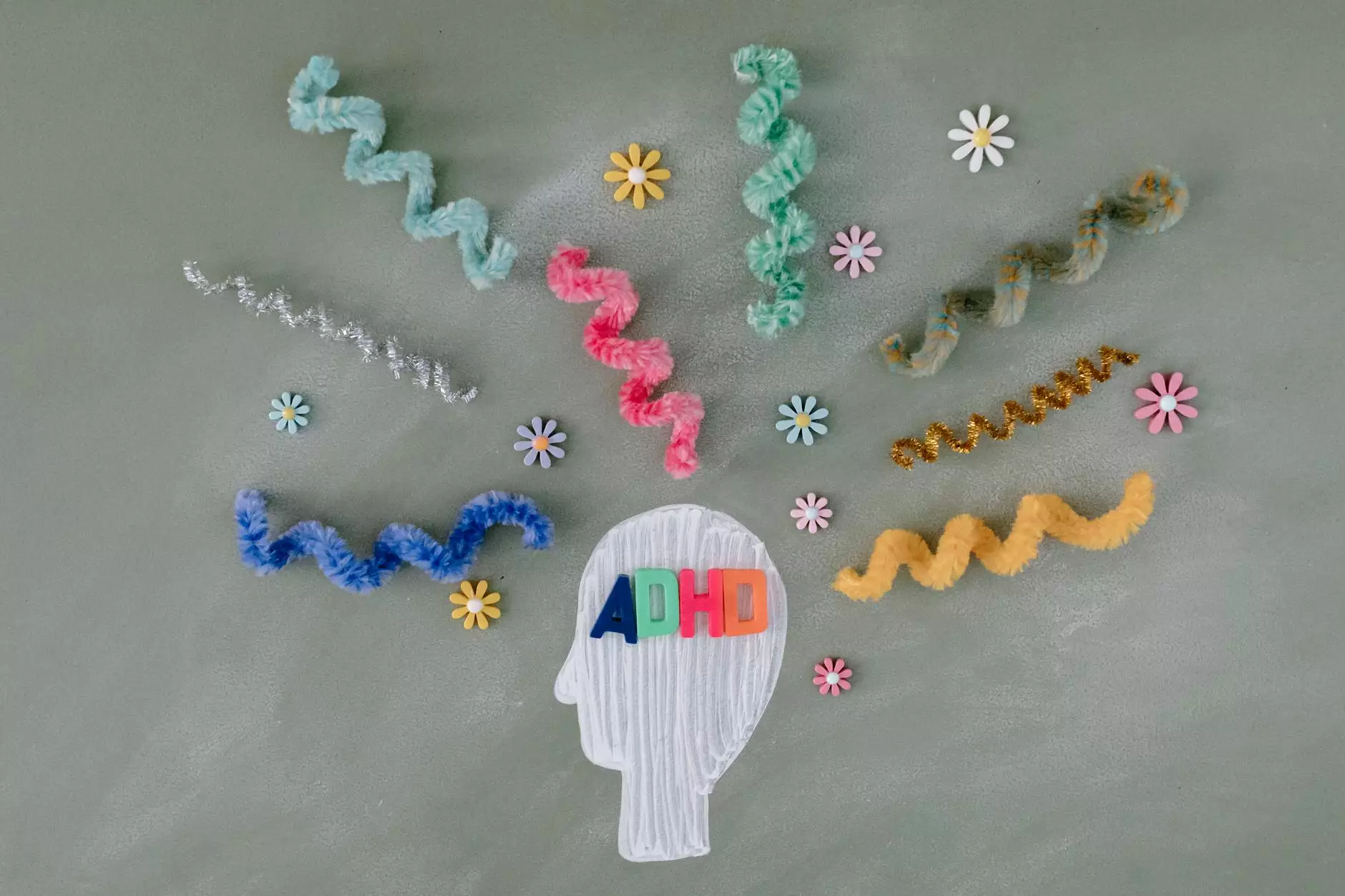Understanding ADHD Pills: A Comprehensive Guide

Attention Deficit Hyperactivity Disorder (ADHD) is a neurodevelopmental disorder that affects millions of individuals worldwide, disrupting their ability to focus, control impulses, and manage their time effectively. With the escalating diagnosis rates, the demand for effective treatment options has significantly increased. Among these, ADHD pills play a crucial role in managing symptoms. In this article, we will explore the various aspects of ADHD pills, including their types, benefits, and potential side effects, providing essential information for those seeking to understand and navigate this often-overwhelming landscape.
What Are ADHD Pills?
ADHD pills, or medications used to treat Attention Deficit Hyperactivity Disorder, are often categorized into two main types: stimulants and non-stimulants. Each category works differently to help manage ADHD symptoms effectively.
Stimulant Medications
Stimulant medications are the most commonly prescribed pills for ADHD. These drugs work by increasing the levels of specific neurotransmitters, such as dopamine and norepinephrine, within the brain. This boost helps to enhance focus, attention, and impulse control. Some of the most widely prescribed stimulant medications include:
- Adderall: A combination of amphetamine and dextroamphetamine.
- Ritalin: Methylphenidate, known for its quick action.
- Vyvanse: A prodrug that provides a smoother release of the active ingredient.
- Concerta: An extended-release form of methylphenidate designed for all-day coverage.
Non-Stimulant Medications
For individuals who may not respond well to stimulants or prefer to avoid them due to potential side effects, non-stimulant medications can be effective alternatives. These medications may take longer to show results but can offer valuable symptom management. Notable non-stimulant options include:
- Strattera: Atomoxetine, which selectively inhibits the reuptake of norepinephrine.
- Intuniv: Guanfacine, which affects receptors in the brain to help regulate attention and impulsivity.
- Kapvay: Clonidine, utilized primarily for its sedative properties and ability to reduce hyperactivity.
How Do ADHD Pills Work?
The effectiveness of ADHD pills lies in their ability to alter brain chemistry. Stimulant medications improve communication between brain regions, enhancing the executive functions that may be dysfunctional in individuals with ADHD. This leads to improved concentration, increased task completion, and reduced impulsity.
On the other hand, non-stimulant medications provide symptom relief by targeting the norepinephrine system, effectively increasing attention span and decreasing hyperactivity without the potential for abuse that some stimulant medications carry.
The Benefits of ADHD Pills
The incorporation of ADHD pills into the treatment plan of individuals diagnosed with ADHD can yield numerous benefits:
- Improved Focus: Many individuals with ADHD struggle with maintaining attention on tasks. Medication can significantly enhance concentration levels.
- Better Academic Performance: Students often experience improved grades and test results due to enhanced focus and retention of information.
- Enhanced Social Skills: By managing impulsivity, individuals might find it easier to navigate social interactions.
- Increased Emotional Regulation: The ability to manage one's emotions plays a critical role in daily functioning and relationships.
Potential Side Effects of ADHD Pills
While ADHD pills can be highly effective, they are not without potential side effects. It’s essential for individuals and guardians to be informed about these possibilities:
Common Side Effects
- Insomnia: Difficulty falling or staying asleep is a frequent concern.
- Appetite Loss: Many individuals experience decreased appetite, which can lead to weight loss.
- Increased Heart Rate: Some medications may lead to elevated heart rates.
- Dry Mouth: A common complaint among users of stimulant medications.
Serious Side Effects
Though rare, some serious side effects necessitate immediate medical attention, including:
- Heart Problems: Individuals with pre-existing heart conditions may need careful supervision.
- Severe Mood Changes: Any drastic changes in mood or behavior should be reported to a healthcare provider.
- Allergic Reactions: Symptoms such as rashes, itching, or swelling warrant urgent care.
Finding the Right ADHD Medication
Choosing the right ADHD pills is a personalized process that requires thorough discussion with healthcare providers. Factors to consider include:
- Individual Symptoms: Each person experiences ADHD differently, making personalized treatment plans vital.
- Medical History: Prior medical conditions may influence the choice of medication.
- Potential for Abuse: Consideration of stimulant vs non-stimulant options if there is a history of substance abuse.
Managing ADHD with a Holistic Approach
While ADHD pills can play a critical role in symptom management, integrating other strategies can lead to a more enriching and balanced approach. Incorporating behavioral therapy, lifestyle changes, and support systems can amplify the effectiveness of medication:
Behavioral Therapies
Behavioral therapy, such as cognitive-behavioral therapy (CBT), can help individuals develop strategies to cope with their symptoms. This therapy focuses on changing negative patterns of thinking and behavior, fostering better emotional regulation and coping mechanisms.
Lifestyle Changes
Implementing consistent routines, maintaining a healthy diet, engaging in regular physical activity, and ensuring adequate sleep are all crucial elements that can significantly impact the efficacy of ADHD pills.
Support Systems
Building a solid support network through family, friends, or support groups can provide encouragement, accountability, and understanding that individuals with ADHD may need to thrive.
Conclusion
In conclusion, ADHD pills represent a cornerstone in the management of Attention Deficit Hyperactivity Disorder, offering significant improvements in focus, emotional regulation, and overall quality of life. However, it is essential to approach treatment comprehensively, considering medication as part of a broader strategy that includes therapy, lifestyle adjustments, and strong support systems. Individuals and caregivers should seek guidance from healthcare professionals to navigate the complexities of ADHD treatment effectively.
At gibsonmaxup.com, we are committed to providing the latest information and resources regarding health, medical supplies, and pharmacy needs to help you in your journey towards better health and well-being.









